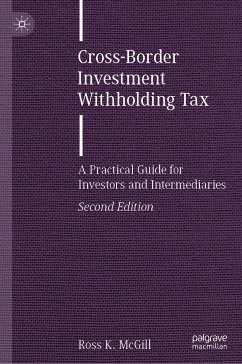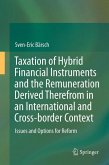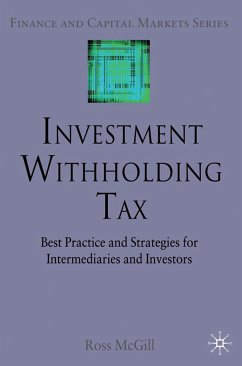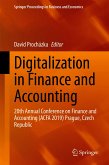This book provides a clear and concise explanation of withholding tax and how to leverage best practice to generate improved investment performance. It gives practical guidance to financial service firms and investors to help them understand the issues involved, trends and practicalities of maximizing returns on investment.
Most of the $200 billion of withholding tax lost by investors annually is due to lack of awareness and not asking the right questions of their brokers and custodian banks. Financial institutions are also increasingly being held to a higher standard by investors for provision of withholding tax services because of the impact it can have on portfolio performance. This book seeks to raise awareness of the issues and provide more detail about how the system works and what challenges and changes readers should expect in the future.
Ross K. McGill is a well-known author of nine books on international withholdingtax and associated regulation as well as anti-tax evasion frameworks (GATCA). McGill sits on several international tax related committees including ISO20022 Securities Evaluation Group. He was an Expert Witness to the European Commission FISCO Group in 2012 and a member of, and editor of, the European Commission Tax Barriers Business Advisory Group Report on in 2013.
Dieser Download kann aus rechtlichen Gründen nur mit Rechnungsadresse in A, B, BG, CY, CZ, D, DK, EW, E, FIN, F, GR, HR, H, IRL, I, LT, L, LR, M, NL, PL, P, R, S, SLO, SK ausgeliefert werden.









